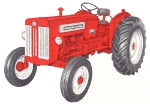Nylon or Steel string? ...which is better to learn guitar?
#1

Posted 07 November 2009 - 10:24 PM
I walked into a music store last week. was an incredible
feeling to actually do it on purpose, I was there to
cop me a guitar. at my age I might be a little late
but I'm sick of computer generated sounds...I want to feel
the music!
Thusly I bee-lined it to the guitar section and grabbed
a cort steel string guitar. up until then I had only played
nylon strings. the pain was noticeable but right on cue
guitar guru guy popped up. He explained the pain was normal
and expected.
So heres my dilema. since Im starting out I think I should
get a nylon string guitar. its softer and more nb its cheaper!
however guitar guru knows his stuff. he did wonders on the steel
and promised me the skillz fall in deeper when you get used to
the pain of strumming steel with finger hammers. its meant to make
finger muscles flex better or something.
I'd like an informed opinion if possible, which do you think I should buy?
nylon or steel?
feeling to actually do it on purpose, I was there to
cop me a guitar. at my age I might be a little late
but I'm sick of computer generated sounds...I want to feel
the music!
Thusly I bee-lined it to the guitar section and grabbed
a cort steel string guitar. up until then I had only played
nylon strings. the pain was noticeable but right on cue
guitar guru guy popped up. He explained the pain was normal
and expected.
So heres my dilema. since Im starting out I think I should
get a nylon string guitar. its softer and more nb its cheaper!
however guitar guru knows his stuff. he did wonders on the steel
and promised me the skillz fall in deeper when you get used to
the pain of strumming steel with finger hammers. its meant to make
finger muscles flex better or something.
I'd like an informed opinion if possible, which do you think I should buy?
nylon or steel?
“Behind this mask there is more than just flesh. Beneath this mask there is an idea... and ideas are bulletproof Gas-Fireproof.”
#2

Posted 07 November 2009 - 10:36 PM
Cat gut!
O xein', angellein Lakedaimoniois hoti têde; keimetha tois keinon rhémasi peithomenoi.
#3

#4

Posted 07 November 2009 - 11:14 PM
Listen to guitar guru would be my advice.
Steel strung will be more difficult to begin with(nylon strings are just easier to play), but in the long run will be worth it, and(though this is just my opinion) steel strung sounds nicer(personal preference-listen to both and decide which you prefer the sound of, but most people I know prefer steel).
Your fingers will callus quickly enough.
Steel strung will be more difficult to begin with(nylon strings are just easier to play), but in the long run will be worth it, and(though this is just my opinion) steel strung sounds nicer(personal preference-listen to both and decide which you prefer the sound of, but most people I know prefer steel).
Your fingers will callus quickly enough.
Cougar said:
Grief, FFS will you do something with your sig, it's bloody awful
worry said:
Grief is right (until we abolish capitalism).
#5

Posted 07 November 2009 - 11:53 PM
Go steel. My personal experience trying to learn the guitar over the last few months is that steel is good.
Last summer, I started with some nylon strings on a classical guitar but there were too many factors I didn't like (strings, constant loss of tune due to age, and huge neck width, to name a few). So I put off learning for a year and during this summer, I bought an electric guitar with its steel strings. Yeah, my fingers hurt and still do depending on what I'm trying to learn (working on a song now with so much bending, and my fingers can feel it). It's just something you have to build up the calluses for.
Last summer, I started with some nylon strings on a classical guitar but there were too many factors I didn't like (strings, constant loss of tune due to age, and huge neck width, to name a few). So I put off learning for a year and during this summer, I bought an electric guitar with its steel strings. Yeah, my fingers hurt and still do depending on what I'm trying to learn (working on a song now with so much bending, and my fingers can feel it). It's just something you have to build up the calluses for.
#6

Posted 08 November 2009 - 11:58 AM
Depends what you want to learn?
Do you want to play classical guitar or flamenco? if so then nylon/cat gut strings
If you want to learn to play folk/rock/pop get steel.
Steel string guitar would be my suggestion. I've been playing/teaching for about 25 years and I would always recommend steel for four reasons.
1. The guitar neck on a nylon/classical guitar is alot wider from bottom E string to top E string. This makes it harder to play bar chords, which is vital to strenghthen the left or 'shape' hand.
2. When first learning to strum it can take a while to learn how hard to hit/strum the strings. With a nylon string guitar these break more than steel.
3. Nylon string guitars don't produce the same sense of accomlishment when learning. If you have a song that you want to learn, most of the time it will sound better on the steel string therefore producing a more encouraging attitude. I've had plenty of pupils who almost gave up because they couldn't get the nyon string guitar to sound authentic. This is due to the fact that steel strings produce more vibrato and sustain than nylon. For exsample: Led Zepplin's 'Babe, Im Gonna Leave You' on nylon string just doesn't have the warmth and depth, let alone when playing the heavy bit. It just don't work.
4. Nylon string guitars are gay.
Progressing to electric guitar is alot easier from steel than nylon. For any level of guitarist I would recommend Ralph Denyer's The Guitar Handbook. This contains all you need to know on how to play and improve your skills. Every chord is in it and how to develop your style on your own terms. It explains music theory without bamboozling with technical jargon.
Everyone should learn to play the guitar, it's dead easy, just need a bit of discipline.
There's nohing like learning how to play your favorite song for yourself.
If you need any assistance let me know
Do you want to play classical guitar or flamenco? if so then nylon/cat gut strings
If you want to learn to play folk/rock/pop get steel.
Steel string guitar would be my suggestion. I've been playing/teaching for about 25 years and I would always recommend steel for four reasons.
1. The guitar neck on a nylon/classical guitar is alot wider from bottom E string to top E string. This makes it harder to play bar chords, which is vital to strenghthen the left or 'shape' hand.
2. When first learning to strum it can take a while to learn how hard to hit/strum the strings. With a nylon string guitar these break more than steel.
3. Nylon string guitars don't produce the same sense of accomlishment when learning. If you have a song that you want to learn, most of the time it will sound better on the steel string therefore producing a more encouraging attitude. I've had plenty of pupils who almost gave up because they couldn't get the nyon string guitar to sound authentic. This is due to the fact that steel strings produce more vibrato and sustain than nylon. For exsample: Led Zepplin's 'Babe, Im Gonna Leave You' on nylon string just doesn't have the warmth and depth, let alone when playing the heavy bit. It just don't work.
4. Nylon string guitars are gay.
Progressing to electric guitar is alot easier from steel than nylon. For any level of guitarist I would recommend Ralph Denyer's The Guitar Handbook. This contains all you need to know on how to play and improve your skills. Every chord is in it and how to develop your style on your own terms. It explains music theory without bamboozling with technical jargon.
Everyone should learn to play the guitar, it's dead easy, just need a bit of discipline.
There's nohing like learning how to play your favorite song for yourself.
If you need any assistance let me know
#7

Posted 08 November 2009 - 03:05 PM
Basically, Steel..................
The only reason for going for nylon is the sound. If you are a beginner you will probably experiment with different types of music. Everything sounds good with steel and it is easier to go from playing steel to nylon than vice-versa.
Nylon is traditionally used for classical,folk etc but you can get get a funky blues /jazz tone from them too.
Your fingers will callous up pretty quickly just put the practice in.
The only reason for going for nylon is the sound. If you are a beginner you will probably experiment with different types of music. Everything sounds good with steel and it is easier to go from playing steel to nylon than vice-versa.
Nylon is traditionally used for classical,folk etc but you can get get a funky blues /jazz tone from them too.
Your fingers will callous up pretty quickly just put the practice in.
#8

Posted 08 November 2009 - 03:07 PM
Steel strings.
I've been playing guitar for about 18 yrs, but I'm fully and completely a Bass player. mmmmmmm bass.
My son is taking a guitar course this yr in school, so I'm tying to teach what little I can (steel strings) that should take about 5 mins of his time. Today I'm teaching him Lola, by the Kinks. After all these yrs I finally learned how to play that song, with the riff. So this will be our sunday project. (steel strings)
I have a Profile acoustic that will rip your fingers open with it's steel strings. Everyone hates picking it up and playing it. I bought my son a Yamaha acoustic a couple yrs ago. Guess what? It has steel strings on it.
My verdict....steel strings.
I've been playing guitar for about 18 yrs, but I'm fully and completely a Bass player. mmmmmmm bass.
My son is taking a guitar course this yr in school, so I'm tying to teach what little I can (steel strings) that should take about 5 mins of his time. Today I'm teaching him Lola, by the Kinks. After all these yrs I finally learned how to play that song, with the riff. So this will be our sunday project. (steel strings)
I have a Profile acoustic that will rip your fingers open with it's steel strings. Everyone hates picking it up and playing it. I bought my son a Yamaha acoustic a couple yrs ago. Guess what? It has steel strings on it.
My verdict....steel strings.
#9

Posted 08 November 2009 - 08:19 PM
Done and done. Come D-day I'm gonna get me some Steel String hardware.
how long does it take you to learn a song Waydoug? 18 years sounds like a LOOOOOONG record.
it must be second nature by now...
how long does it take you to learn a song Waydoug? 18 years sounds like a LOOOOOONG record.
it must be second nature by now...
“Behind this mask there is more than just flesh. Beneath this mask there is an idea... and ideas are bulletproof Gas-Fireproof.”
#10

Posted 09 November 2009 - 01:08 PM
I guess my advice is moot now then,
I was gonna say steel too for sure.
Classical guitars and nylon strings are for the specialist really, and give a very mellow muted sound.
Ie if you want to bash out "take it easy" by the eagles or "no rain" by blind melon (typical easy beginner songs) you are going to sound like a complete gaylord doing it on a nylon stringed guitar.
Plus, unless you're fingerpicking them, nylon strings catch badly on guitar picks and are actually more difficult (IMO) to get a consistent sounding strum when you're first starting out.
One piece of advice I followed when buying a first guitar that I'm very glad for:
Buy second hand from a pawn shop, or if your local music store has 2nd hand guitars, get one of them. You will get a nicer instrument (read better sounding and easier to play) for a much cheaper price than buying new. It will already be broken in, likely will be more tolerant of environmental factors like humidity and temperature, will hold tune better right off the bat, and you can get a feel for the instrument at a low cost until you figure out your style and pick out a more permanent guitar a few years down the road.
By contrast, if you buy new and are aiming for low cost, you'll get something that plays like shit, doesn't hold tune well and has generally poor tone. It will be less fun to play and you'll have a harder time learning to play because cheaper guitars usually have worse action (the height of the strings from the fretboard) and take more pressure to make the notes sound right.
Last advice, if you're aiming for lower cost, Yamaha makes a fine instrument well into their cheap-end stuff, they are generally plentiful and they aren't a particularly prized brand (like gibson, washburn, martin, etc...). If you try out a few you can end up with a totally decent beginner-level instrument at a fraction of the cost you'd see buying new.
I was gonna say steel too for sure.
Classical guitars and nylon strings are for the specialist really, and give a very mellow muted sound.
Ie if you want to bash out "take it easy" by the eagles or "no rain" by blind melon (typical easy beginner songs) you are going to sound like a complete gaylord doing it on a nylon stringed guitar.
Plus, unless you're fingerpicking them, nylon strings catch badly on guitar picks and are actually more difficult (IMO) to get a consistent sounding strum when you're first starting out.
One piece of advice I followed when buying a first guitar that I'm very glad for:
Buy second hand from a pawn shop, or if your local music store has 2nd hand guitars, get one of them. You will get a nicer instrument (read better sounding and easier to play) for a much cheaper price than buying new. It will already be broken in, likely will be more tolerant of environmental factors like humidity and temperature, will hold tune better right off the bat, and you can get a feel for the instrument at a low cost until you figure out your style and pick out a more permanent guitar a few years down the road.
By contrast, if you buy new and are aiming for low cost, you'll get something that plays like shit, doesn't hold tune well and has generally poor tone. It will be less fun to play and you'll have a harder time learning to play because cheaper guitars usually have worse action (the height of the strings from the fretboard) and take more pressure to make the notes sound right.
Last advice, if you're aiming for lower cost, Yamaha makes a fine instrument well into their cheap-end stuff, they are generally plentiful and they aren't a particularly prized brand (like gibson, washburn, martin, etc...). If you try out a few you can end up with a totally decent beginner-level instrument at a fraction of the cost you'd see buying new.
........oOOOOOo
......//| | |oO
.....|| | | | O....BEERS!
......\\| | | |
........'-----'
......//| | |oO
.....|| | | | O....BEERS!
......\\| | | |
........'-----'
#11

Posted 09 November 2009 - 02:01 PM
I still have both of my Yamaha's (six and a twelve string) I am surprised no one has pointed out to start with a lighter gauge string. When I started out some one sugjested to use electric guitar strings at first.
#12

Posted 09 November 2009 - 02:14 PM
I've been at it 15 years, though like Waydoug I'm actually a bassist.
I'd say steel string it and bear the pain for a month or two while you learn, although I can see Bubba's logic, I'd recommend against stringing it with electric strings as the string tension is inappropriate for the neck. Go for a medium gauage as too thin and the top E will be ike cheese wire.
I'd say steel string it and bear the pain for a month or two while you learn, although I can see Bubba's logic, I'd recommend against stringing it with electric strings as the string tension is inappropriate for the neck. Go for a medium gauage as too thin and the top E will be ike cheese wire.
I AM A TWAT
#13

Posted 09 November 2009 - 02:49 PM
I'll second Cougar on that electric guitar strings point.
guitar necks are designed to hold a narrow range of string tension and not much more or less. If you have too little string tension, then neck will warp flat and your strings will eventually buzz on the frets. If you have too much tension you can cause the guitar to form a "belly" beneath the bridge and/or cause the neck to warp into an arc, which ruins the action.
If you're getting a guitar, only ever mount the string type recommended for that guitar. You might get away with something else for a short while but it will eventually ruin the guitar.
A lot of knowledgeable people will tell you this too.
EDIT As bubba suggests though, lighter gauge acoustic strings are a good idea for learning. You can typically buy light, medium and heavy depending on how hard you're going to play it and what type of tone you want to achieve. Its also worth the money to get the poly-coated strings. They are about 3x the cost of normal ones but they sound bright and last forever since finger-gunk doesn't work its way into the string coils as quickly.
guitar necks are designed to hold a narrow range of string tension and not much more or less. If you have too little string tension, then neck will warp flat and your strings will eventually buzz on the frets. If you have too much tension you can cause the guitar to form a "belly" beneath the bridge and/or cause the neck to warp into an arc, which ruins the action.
If you're getting a guitar, only ever mount the string type recommended for that guitar. You might get away with something else for a short while but it will eventually ruin the guitar.
A lot of knowledgeable people will tell you this too.
EDIT As bubba suggests though, lighter gauge acoustic strings are a good idea for learning. You can typically buy light, medium and heavy depending on how hard you're going to play it and what type of tone you want to achieve. Its also worth the money to get the poly-coated strings. They are about 3x the cost of normal ones but they sound bright and last forever since finger-gunk doesn't work its way into the string coils as quickly.
This post has been edited by cerveza_fiesta: 09 November 2009 - 02:52 PM
........oOOOOOo
......//| | |oO
.....|| | | | O....BEERS!
......\\| | | |
........'-----'
......//| | |oO
.....|| | | | O....BEERS!
......\\| | | |
........'-----'
#14

#15

Posted 09 November 2009 - 02:54 PM
I agree and dissagree, my first Yamaha a mediam gauge string for two years with no I'll effects, I do agree with not using electrics
#16

Posted 09 November 2009 - 03:01 PM
ah, I see my error. I thought bubba was recommending electric strings.
Yeah, don't use those. Bad.
Do use acoustic strings. Good.
Light gauge is easier to play.
Better?
Sorry...not enough coffee this morning.
Yeah, don't use those. Bad.
Do use acoustic strings. Good.
Light gauge is easier to play.
Better?
Sorry...not enough coffee this morning.
........oOOOOOo
......//| | |oO
.....|| | | | O....BEERS!
......\\| | | |
........'-----'
......//| | |oO
.....|| | | | O....BEERS!
......\\| | | |
........'-----'
#18

Posted 09 November 2009 - 04:35 PM
TBH I always use phosphor bronze strings on my Acoustics (both Bass and Guitar) although the distinction might be a bit pointless for a beginner.
I AM A TWAT
#19

Posted 10 November 2009 - 05:21 AM
wow, the forumns richness of wisdom overwhelms me! thanks guys for all this advice!
I actually never knew I could mess up my guitar by applying the wrong strings.
Can a steel string guitar work well for finger picking?
From what I understand the nylon range tend to fail in humid conditions and durban
is as humid as you can get. will steel not be affected as well? I'm thinking
moisture and metals don't usually get along.
@ cerveza_fiesta: dude your a genius. I have gone to a few second hand
shops and the price is waaay better than anticipated. do you think a second hand
yamaha will serve me well for 4 years plus?
4 years. thats how long I plan to use entry level steel stringing goodness.
...not sure if thats a reasonable expectation though...
I actually never knew I could mess up my guitar by applying the wrong strings.
Can a steel string guitar work well for finger picking?
From what I understand the nylon range tend to fail in humid conditions and durban
is as humid as you can get. will steel not be affected as well? I'm thinking
moisture and metals don't usually get along.
@ cerveza_fiesta: dude your a genius. I have gone to a few second hand
shops and the price is waaay better than anticipated. do you think a second hand
yamaha will serve me well for 4 years plus?
4 years. thats how long I plan to use entry level steel stringing goodness.
...not sure if thats a reasonable expectation though...
“Behind this mask there is more than just flesh. Beneath this mask there is an idea... and ideas are bulletproof Gas-Fireproof.”
#20

Posted 10 November 2009 - 09:00 AM
If you are just starting off then almost anything will do, the last thing you want to do is find out you're a ten thumbed, tone deaf, talentless noise polluter after blowing a fortune on an instrument that loses half t's value as you leave the shop!
Things to check, have a look at the action, that's the distance between the fret board and the strings, compare it to other instruments, it will be relatively high on a low end acoustic (compared to an electric) but what you are really concerned with is how much force you hav to apply to push the strings down. The higher the action, the more effort, the more painful the experience and the longer you'll take to learn.
Check the neck, it will probably have a barely perceptible bend forward to allow the strings not to hit the frets, if it's bent back I'd steer clear. Also check that there is no fret buzz by playing the strings at each fret and listening for rattle,each string should play clearly when fretted right down to the last couple of frets, fret buzz is bad as on most cheapish acoustics adjusting the action is not possible or very difficult.
You can learn to finger pick on a metal string, it's just as easy I'd say.
Do you have any mates who play who you can ask to go with you?
Things to check, have a look at the action, that's the distance between the fret board and the strings, compare it to other instruments, it will be relatively high on a low end acoustic (compared to an electric) but what you are really concerned with is how much force you hav to apply to push the strings down. The higher the action, the more effort, the more painful the experience and the longer you'll take to learn.
Check the neck, it will probably have a barely perceptible bend forward to allow the strings not to hit the frets, if it's bent back I'd steer clear. Also check that there is no fret buzz by playing the strings at each fret and listening for rattle,each string should play clearly when fretted right down to the last couple of frets, fret buzz is bad as on most cheapish acoustics adjusting the action is not possible or very difficult.
You can learn to finger pick on a metal string, it's just as easy I'd say.
Do you have any mates who play who you can ask to go with you?
I AM A TWAT

 Help
Help






















